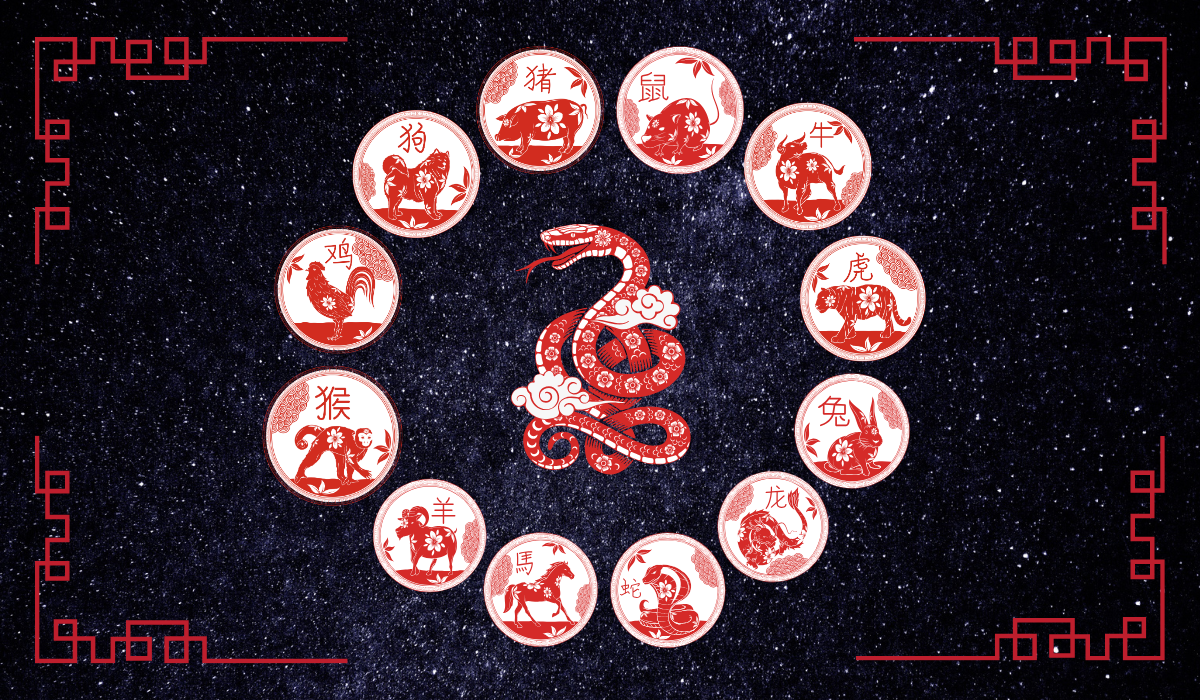Books & Culture
9 of the Worst Gifts in Fiction
From a cursed necklace to a useless comb to a universe-destroying time machine, fiction reminds us that getting another pair of socks this holiday season isn’t necessarily the worst present in the world.

Bad gifts happen to all of us — especially come December. They range from the innocently unwanted, like an ugly sweater, to the flat-out insulting, like an unasked for pair of Spanx. That’s the interesting part about gifts: for good or for ill, they make a statement about the relationship between the two gift-giving parties. Take East of Eden by John Steinbeck. At the beginning of this sweeping family saga, Cyrus Trask prefers his son Adam’s last-minute birthday gift, a stray puppy, over the heartfelt, hard-earned knife he gets from his son Charles. This incident is the last straw in the steadily decaying Trask brothers relationship. (Although, really, who wouldn’t prefer a puppy to a knife?) If you’re thinking that life-long hatred for your brother is an overblown reaction to an ill-recieved birthday present, let me assure you that’s just the beginning. Fiction can magnify an object’s resonance, allowing bad gifts to get awesomely destructive. From a single coveted necklace, Maupassant’s protagonist in “La Parure” ends up in complete financial ruin. Frodo Baggins gets a ring from his cousin Bilbo and suddenly he’s fighting an evil army in an attempt to save Middle-Earth.
Just how bad can these bad gifts can get? Read on for cursed necklaces, burdensome time-turners, unusable hair combs, and more truly terrible gifts that will make you feel better about getting your third Elf on the Shelf this holiday season.
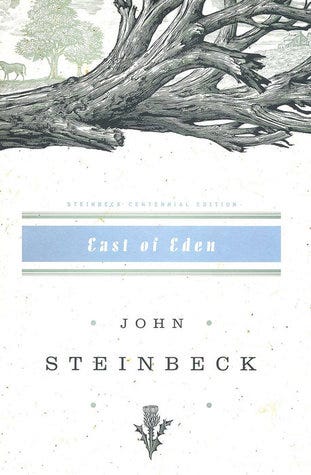
1. The Stray Puppy in East of Eden by John Steinbeck
East of Eden contains some epic conflicts, starting with the sibling rivalry of Charles and Adam Trask. Their father, Cyrus Trask, overtly prefers Adam even though it is Charles who seems to love his father more. The boys envy and dislike comes to a head at Cyrus’ birthday when Cyrus prefers his son Adam’s gift — a stray puppy that Adam found — over Charles’ more thoughtful gift, a knife that he worked hard to afford. And thus the poor puppy becomes a puppet in the dysfunctional Trask family saga.
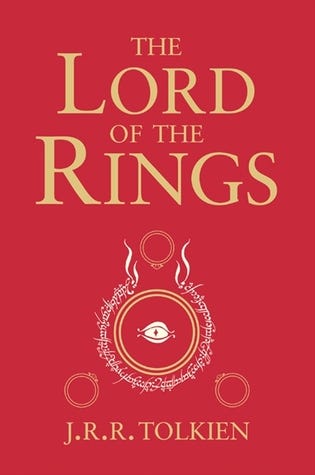
2. Sauron’s Ring in The Lord of the Rings by J.R.R. Tolkien
In the opening to Tolkien’s Lord of the Rings trilogy, Bilbo Baggins gives his cousin Frodo a gift — then conveniently disappears before anyone realizes its significance. The gift is the famed ring of Sauron, which corrupts the wearer, and which the Dark Lord will do anything to get back. Frodo must embark on a dangerous mission to destroy the ring in Mount Doom, which is definitely the most intense return policy of all time.
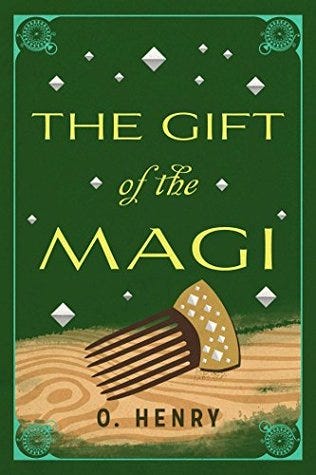
3. The Haircombs and Watch Fob in ‘The Gift of the Magi’ by O.Henry
Written in 1905, “The Gift of the Magi” is O.Henry’s popular tale of Jim and Della Young, a poor married couple who want to buy each other Christmas presents, only they don’t have any money. The cash-poor couple does own two valuable objects: Della has long, beautiful hair, and Jim owns his father’s gold pocket watch. In a stellar use of dramatic irony, Della sells her hair to buy Jim a fob chain for his watch while Jim sells the watch to buy Della hair combs, rendering both presents useless. O.Henry ends the story by emphasizing that it’s the Young’s love for each other which is important, but as far as the actual gifts go, I think we can agree these are an epic fail.
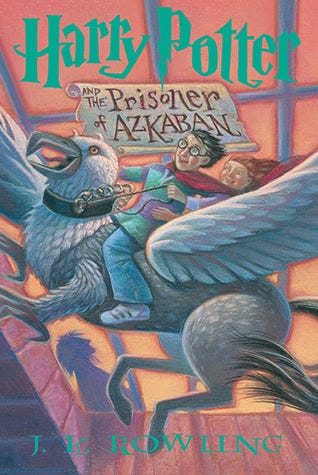
4. The Time Turner in Harry Potter and the Prisoner of Azkaban by J.K. Rowling
In the third novel in the Harry Potter series, Dumbledore gives Hermione a Time-Turner, a device that allows her to take extra classes at Hogwarts by going back in time. This sounds great until you realize that Dumbledore gives an adolescent girl a gift which, if used incorrectly, has the power to completely mess up the universe. And in fact the Time-Turner becomes more of a burden than a help when Dumbledore tells Hermione that she has to use it to save the world from Voldemort. No pressure.
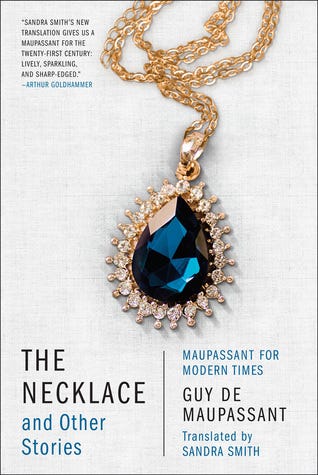
5. The Necklace in ‘La Parure’ by Guy de Maupassant
The protagonist of Guy De Maupassant’s cautionary tale of greed is Madame Mathilde Loisel, a poor woman who has always envied the wealthy and aspired to be rich. When Madame Loisel gets an invitation to attend a fancy party at the Ministry of Education, she convinces her husband to use his savings to buy her a new dress for the occasion. The dress isn’t enough to satisfy her, so she visits her wealthy friend Madame Forestier, who gives her a necklace to wear for the evening. Madame Loisel loses the necklace at the party and she and her husband go broke trying to replace it. Years later, Madame Loisel runs into Madame Forestier and learns that the necklace was a fake — she and her husband went into financial ruin over a piece of plaster and her superficial ambitions.
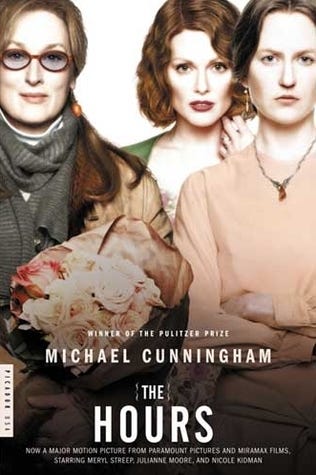
6. The Birthday Cake in The Hours by Michael Cunningham
One of the three narratives in Cunningham’s Pulitzer Prize-winning novel belongs to Laura Brown, a housewife in suburban California in 1949. Laura is baking her son a cake for his birthday, and it becomes the final straw in her mental breakdown. The homemade gift for her little boy becomes an emblem of her life; she feels simultaneously inadequate at executing the project, disgusted by its conventionality, and trapped by her family’s expectations. If her son knew that the cake would lead to his mother’s attempted suicide, I’m sure he’d have settled for Carvel.
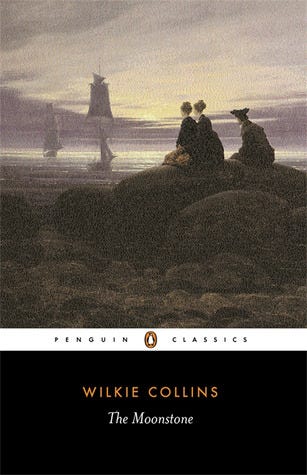
7. The Moonstone in The Moonstone by Wilkie Collins
At her eighteenth birthday party in a huge country mansion, Rachel Verinder receives the Moonstone, a yellow diamond that was looted from an Indian temple. Before she can even ask — Do these cursed diamonds go with this dress? — the stone is stolen. The resulting story, which T.S. Eliot called the first modern English detective novel, intertwines a whodunit with the history of colonialism in India.
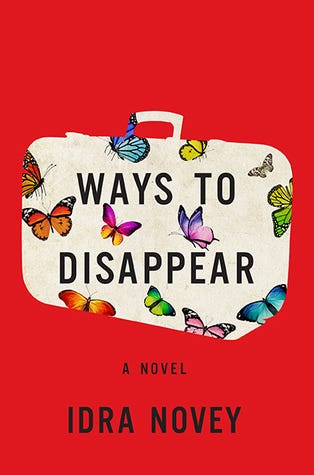
8. Marcus’ Ear in Ways to Disappear by Idra Novey
When Emma Neufeld goes to Brazil, it’s as much to get out of her own staid life as to search for Beatriz Yagoda, the fiction writer whose work Emma has translated for years, and who has suddenly gone missing. Things get interesting for Emma, who enters into a hot affair with Beatriz’s son Marcus, only to receive a terrible “gift” left for her in an orange box at the front desk of her hotel: Marcus’ ear, sent by kidnappers demanding payment for Beatriz’ debt. “Within the bag was a blood-crusted ear she had licked so recently she could still taste it on her tongue.”
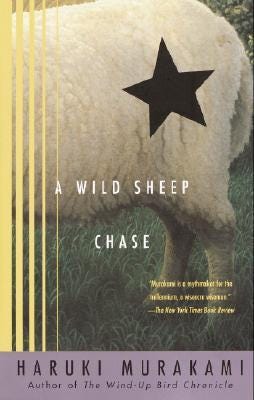
9. The Postcard in A Wild Sheep Chase by Haruki Murakami
Once you give someone a gift, you can’t be held responsible for how they use it, as evidenced by the many Amazon gift cards I’ve used to purchase paper towels. In the third book in Murakami’s “Trilogy of the Rat,” a chain-smoking advertising executive receives a postcard from an old friend. The narrator likes the card’s pastoral scene but, instead of smartly sticking the postcard on his fridge, he appropriates the image and uses it in an ad campaign. The image contains a sheep with a star shaped birthmark which triggers a call from a shadowy man called The Boss, who tells the narrator he has two months to find the sheep or his life will be ruined.








